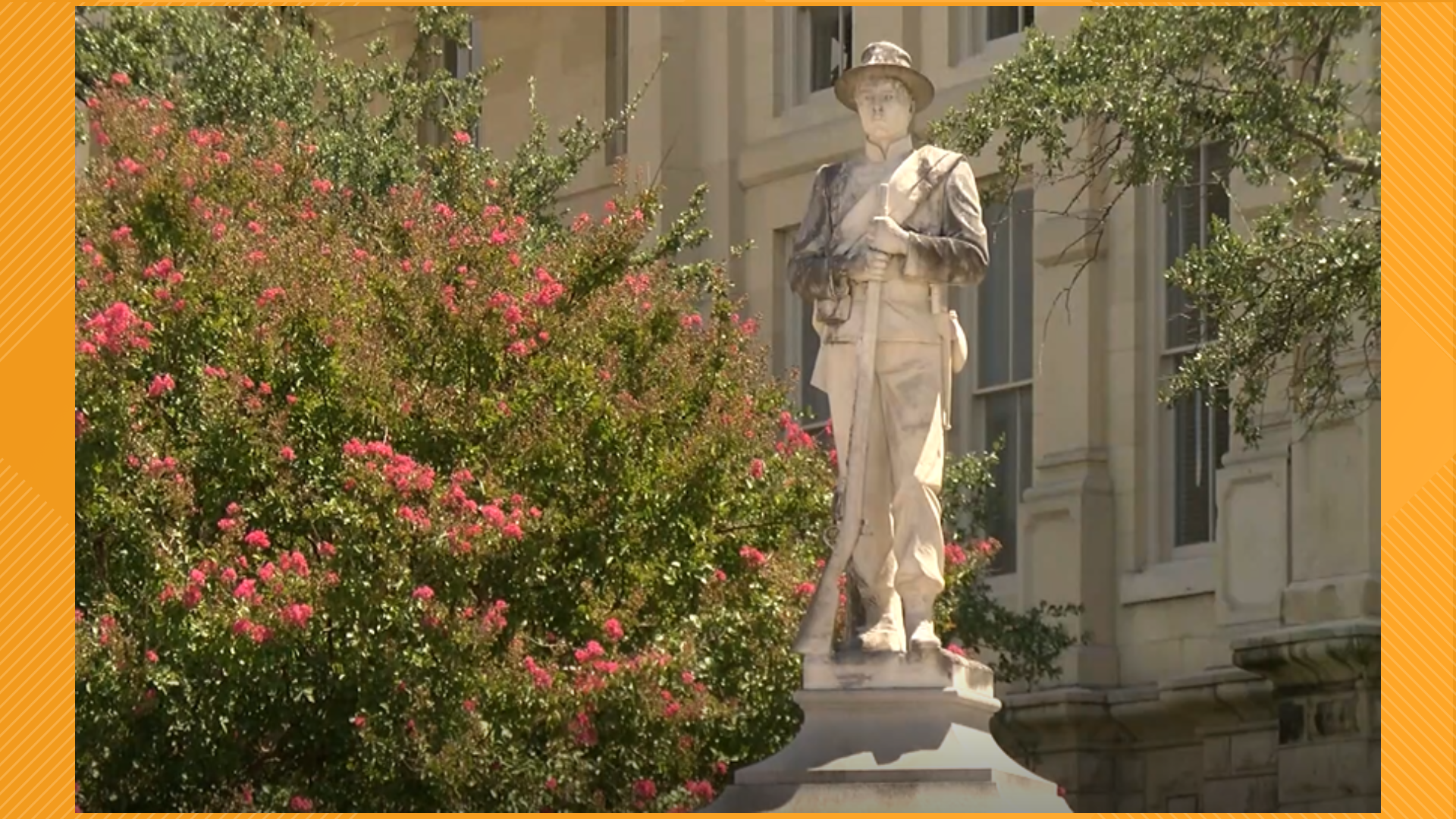BELL COUNTY, Texas — The Bell County Commissioners Court held a discussion on the possible removal and relocation of the Confederate monument on the Bell County Courthouse lawn on Wednesday.
The hot topic resurfaced after Belton Citizens for Change called for the removal of the monument just over a month ago, which was met with strong opposition by supporters of keeping the statue on the courthouse lawn. Now, commissioners are holding an open discussion on the topic, looking to gauge public opinion on the matter.
During the discussion, UMHB President Randy O’Rear said he has no idea what the cost of removing the statue will be, but if a decision is made to relocate it, UMHB will donate up to $10,000 to do it.
"As the president of The University of Mary Hardin Baylor, I believe it's appropriate to participate in this discussion because, in 1916, The University of Mary Hardin Baylor was the keynote speaker at the dedication of the statue. The former president’s wife was a member of the Belton Daughters of the United Daughters of the Confederacy, the group that raised money for the members of the Belton community to purchase the statue," O’Rear said.
O’Rear said he thinks it’s important for him to speak in favor of removing the statue to a different location. He visited with some of his African American friends and colleagues and listened to their remarks on how the statue is always a reminder of the past where African American citizens were considered second class citizens.
“If the statue is relocated it will not erase the tragedy of the civil war or the evil consequences of slavery in our country, but perhaps if it is removed from the front of the building that represents justice and equity it can become a learning tool to remind us of the tragic impact that racism has made on so many peoples lives,” O’Rear said.
He said the University of Mary Hardin Baylor believes the most effective way to change one's hearts is through education and the work of the holy spirit. He said the history of the university includes examples that are now considered reprehensible. He’s grateful the founders founded the first Baptist University in Texas but said they were owners of enslaved people.
“In 1920 there was a campus club associated with the KKK. Thankfully it lasted only one year. Our yearbooks contain instances of blackface and southern which is a sad reminder of ignorance and racial insensitivity. It's our duty to learn from history and find positive new ways to foster unity, healing and love from one another,” O’Rear said.
Also on KCENTV.com

